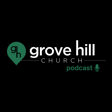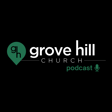
Understand God's Response to Sin - Immersed Series
In this sermon, Ridley Barron preached about understanding God's response to sin and the profound significance of the Passover sacrifice. He delves into God's unyielding faithfulness to His promises, as shown through the story of the Hebrew people in Egypt, highlighting His provision of a substitute in the face of rebellion. Barron connects this with the ultimate sacrifice of Jesus, drawing the red thread from Genesis to Revelation, and to the cross, emphasizing the essential role of Christ's blood in salvation. Through engaging personal anecdotes and scriptural insights, he calls for a deeper remembrance of Christ's sacrifice, urging listeners to genuinely engage with the grace and redemption offered through communion in a fresh and meaningful way.
Timestamps:
03:50 "Blood, Life, and Salvation Thread"
08:32 Pharaoh's Defiance and Moses' Doubt
12:15 Experiencing True Darkness
15:28 Reapproaching Spiritual Connection
16:22 Rethinking First Corinthians 11
22:16 Seder Meal and Its Significance
24:06 "Trust and Forgetfulness in Faith"
28:51 "The Flame of Divine Presence"
30:46 "Complacency with the Holy Spirit"
35:33 "Commemorating Christ's Sacrifice"
37:01 Prayer for Repentance and Grace


